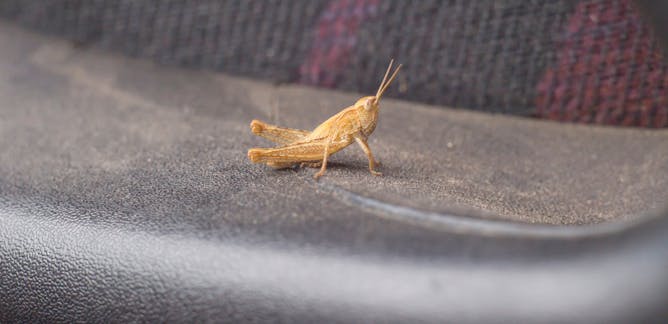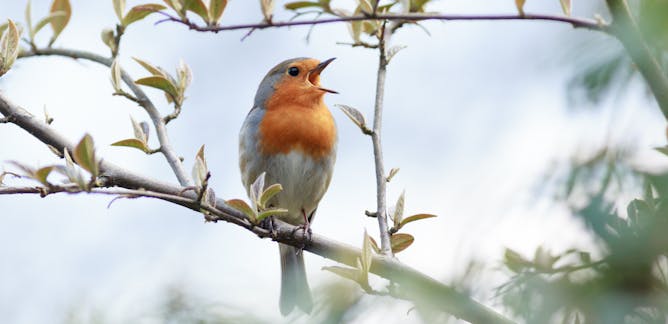|
|
|
Your weekly dose of evidence
|
|
School is back after the winter break, to the relief of parents and – while they might not admit it – many children and teens. It's always difficult getting everyone out the door on time in the morning, but some families have a much tougher time, especially after holidays. Despite their parents' best efforts, some kids simply refuse to go to school. It's a psychological condition that affects around 1-2% of children. Psycholgy researchers Jade Sheen and Amanda Dudley explain what you can do if you're in this situation.
A group of residents in the Victorian town of Mount Eliza fear their quiet community will be overrun with screaming children if a playgound is build on a vacant strip. Similar battles have played out around the country, pitching parents against elderly residents. So what does the research say? Turns out, few people are worried about the 'noise pollution' caused by kids. Most support children being out in nature and find parks calming and restorative. And, of course, playgrounds are as much a meeting place for parents as for children.
When we see headlines that don't seem quite right, we try to get to the bottom of it. Two headlines in particular caught our eye this week and we put our best experts on the case of unpacking what the original studies really found. Are phone obsessed teens at greater risk of ADHD? (There is a link between the two, but not evidene that one thing causes the other.) Do neckties reduce blood supply to the brain?
(Yes, but not enought to impact most healthy men.)
Do you have a child, niece or nephew, or neigbour who is always asking inquisitive questions about how the world works? We take questions from curious kids and get experts to answer them. Check out our articles this week on how clouds stay up in the sky, why birds sing and more.
Enjoy the first edition of Thrive. We'll see you next Saturday.
|
Fron Jackson-Webb
Senior Health + Medicine Editor/Chief of Staff
|

|
|
|
|

1-2% of children refuse to go to school.
From shutterstock.com
Jade Sheen, Deakin University; Amanda Dudley, Deakin University
The beginning of a new school term is often met with resistance from kids who would prefer to stay on school holidays. But for some parents, getting their kids to go to school is an ongoing battle.
|

Noise pollution is usually associated with aeroplanes flying overhead, not happy children.
from shutterstock.com
Lucy Taylor, University of Sydney; Dieter Hochuli, University of Sydney
Parks should service a variety of needs, not just cater to one group of people.
|
From the archives: evidence-based parenting
|

Jade Sheen, Deakin University; Jane McGillivray, Deakin University
If your child has a problem with defiant behaviours, there are a number of things you can do to avoid standoffs and reduce the chance of meltdowns. Here's how.
| |

David J Hawes, University of Sydney
Some children's tantrums, irritability and defiance well exceed that typically found in healthy children of the same age. This can be overwhelming for parents, especially as children grow.
|
|
|
Testing the claims
|

Hyperactivity and inattentiveness doesn’t mean you have ADHD.
Ant Rozetsky
Hannah Kirk, Monash University
While the study found a link between high rates of digital media use and inattention and hyperactivity, it didn't find that one caused the other. Nor did it look specifically at clinically diagnosed ADHD.
|

The fashion advice is generally to tighten ties so they’re tight but not too tight.
from www.shutterstock.com
Steve Kassem, Neuroscience Research Australia
Wearing a tie that causes slight discomfort can reduce blood flow to the brain by 7.5%, but the reduction is unlikely to cause any physical symptoms, which generally begin at a reduction of 10%.
|
Expert answers to serious, weird and wacky questions
|

Kim Murphy, Monash University
Many people think green snot means you are really sick, or that you need antibiotics. Not true. Green snot is actually a sign that our immune system is working and that we are getting better.
| |

Kate Wilson, UNSW
If the insect wants to stay right in front of your nose, it must fly forwards just a little bit when the car is speeding up. But when the car is at constant speed, it only needs to hover.
|

Jim McQuaid, University of Leeds
Even a small cloud can weigh as much as four tonnes – but gravity, chemistry and temperature keep them floating in the sky.
| |

Michelle Hall, University of Melbourne
Both male and female birds sing to impress other birds, but as well as that, they do it for pleasure!
|
|
|
|
|
| |
Featured jobs
|

|
La Trobe University — Bundoora, Victoria
|

|
RMIT University — Melbourne, Victoria
|

|
Griffith University — Nathan, Queensland
|

|
University of Melbourne — Parkville, Victoria
|
|
|
|
| |
| |
| |

|
| |
| |
| |
Featured events
|

|
Carson Conference Centre, ANMF, 535 Elizabeth St, Melbourne, Melbourne, Victoria, 3000, Australia — CSIRO
|

|
221 Burwood Highway, Burwood, Victoria, 3125, Australia — Deakin University
|

|
Darwin Convention Centre, 10 Stokes Hill Rd, Darwin City NT 0800, Darwin, Northern Territory, 0909, Australia — Charles Darwin University
|

|
James Cook University, Townsville, Queensland, 4810, Australia — James Cook University
|
|
|
|
| |
| |
| |
| |
| |
|
|
|
|
|
|
|